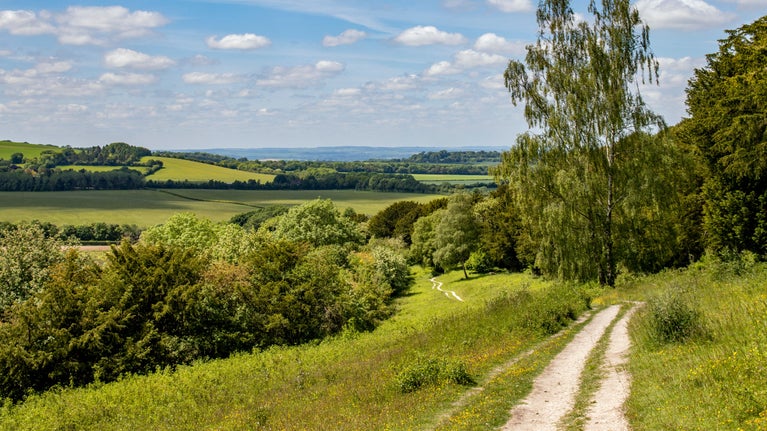
Our covenants

As well as the hundreds of historic places in our care, we also have restrictive covenants over large areas of land and buildings that we don’t own. Learn more about National Trust covenants and how to apply for covenant consent.
About covenants
In 1937, we were granted a special power to hold covenants over land by parliament. Covenants are private legal agreements between the National Trust and landowners, made to protect the natural or historic features of land or buildings and help ensure that future generations can enjoy them. They set out the types of changes to buildings or land that will need our consent.
Applying for consent under our covenants is different to applying for planning or listed building consent from the local authority. The processes are separate and only local authority planning controls are subject to local and national planning policies.
We’re committed to managing our covenants fairly and professionally. Where a landowner wants to make changes to their property, we’ll work with them to find solutions where possible. We look to grant consent where we’re confident that the proposed changes will protect the purpose and intention of the original covenant and fulfil our charitable purpose of conserving nature, beauty and history for everyone, for ever.
Our statutory power gives us the right to benefit from covenants even where we do not own any benefitting land.
Apply for covenant consent
We have a two-stage process for applications under our covenants. The first stage is to get informal advice on a proposal, and then you may be invited to submit a formal application.
Stage one: Initial assessment form
If you own a property that is subject to a National Trust covenant and would like advice on a proposed development or change of use, please contact your local covenant officer using the initial assessment form.
The covenants officer will evaluate the effect of the proposal against the conservation objectives of the covenant to identify which works are likely to be permitted, any design constraints and provide informal guidance based on the outline proposal submitted. Sometimes a site visit may be required to assess the proposal. This advice won't be a binding decision, but aims to guide an applicant towards a proposal that's likely to be given formal consent at the second stage.
They may invite you to make a formal application or suggest that you explore further designs to address specific issues. They’ll let you know if they think it’s unlikely that you will be given formal consent. We aim to provide this assessment within 28 working days of receiving a sufficiently detailed enquiry.
Stage two: Application form for restrictive covenant consent
Once you've received informal advice about your proposals using the initial assessment form, your covenant officer may invite you to submit a formal application using our application form for restrictive covenant consent. The application will be assessed by a senior manager at the National Trust or Covenants Board (where applicable), and we'll keep you informed of its progress throughout the process.
As a condition of giving consent, we may require an applicant to sign a new deed of covenant. If so, the applicant will be responsible for the Trust’s legal fees as well as their own in preparing and agreeing the new deed.
Contacts
Our covenants advice is provided regionally. Please see our list of counties to ensure you address your query to the most appropriate regional officer:
- London and South East (Kent, East Sussex, West Sussex, Hampshire, Isle of Wight, Surrey, London, Berkshire, Buckinghamshire, Oxfordshire): covenantLSE@nationaltrust.org.uk
- South West (Cornwall, Devon, Dorset, Somerset, Wiltshire, Bristol, Bath and Gloucestershire): covenantSW@nationaltrust.org.uk
- Midlands and East of England (Bedfordshire, Cambridgeshire, Essex, Herefordshire, Hertfordshire, Middlesex, Norfolk, Suffolk, Rutland, Birmingham, Derbyshire, Leicestershire, Lincolnshire, Northamptonshire, Nottinghamshire, Shropshire, Staffordshire, Warwickshire and Worcestershire): CovenantMEE@nationaltrust.org.uk
- Wales (Anglesey, Conwy, Denbighshire, Flintshire, Caernarfonshire, Merioneth, Montgomeryshire, Radnorshire, Cardiganshire, Monmouthshire, Brecknockshire, Glamorgan and Pembrokeshire) CovenantWales@nationaltrust.org.uk
- North (North Yorkshire, Humberside, South Yorkshire, West Yorkshire, Northumberland, Cumbria, County Durham, Greater Manchester, Merseyside, Lancashire, Cheshire): CovenantNorth@nationaltrust.org.uk
- Northern Ireland: estates.NI@nationaltrust.org.uk
Frequently asked questions

You might also be interested in

Discover the National Trust Land Map
Find out about the National Trust Land Map, a mapping tool you can use to observe how the variety of places we protect has grown in number across England and Wales since 1895.

How we are run
Discover how the National Trust is run, how our governance arrangements are underpinned by Acts of Parliament and how they are designed to support and challenge our staff.

Follow the Countryside Code
Help to look after National Trust places by observing a few simple guidelines during your visit and following the Countryside Code.

Becoming a tenant
We advertise all our houses on an external website, and you can find information on what we look for when interested in becoming a tenant.